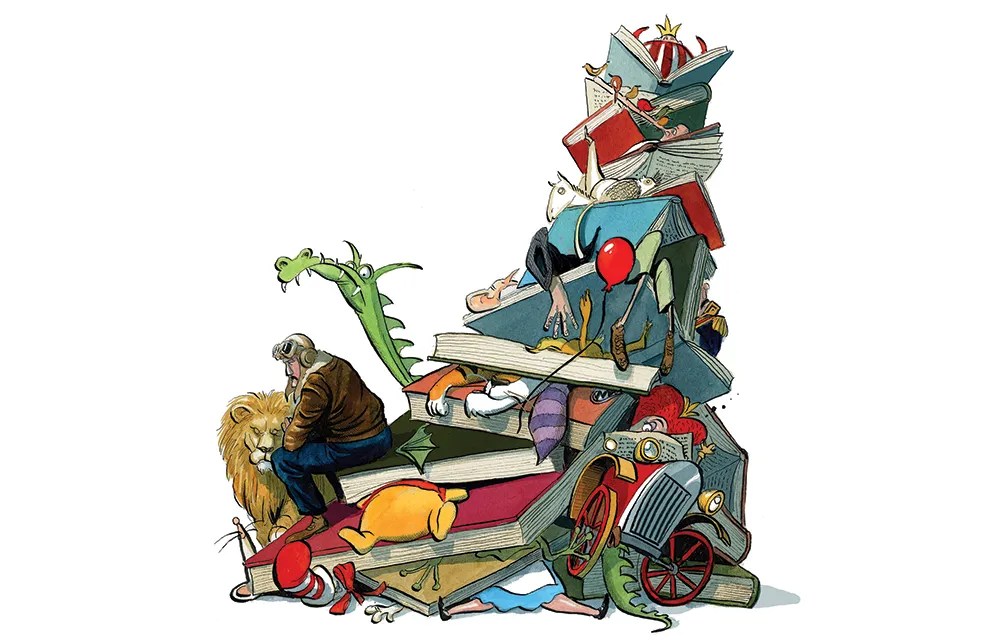Today is GCSE results day, and as ever that is cause for celebration: one in five entries got at least a grade seven (equivalent to an A).
However, despite all the headline photos of smiling faces, proud parents and carefully open envelopes, the GCSE pass rate for English and Maths has hit a record low: only 58 per cent of students achieved a four or above in Maths, whilst only 60 per cent did in English.
GCSE English Language is a strange subject. To understand why so many people fail it, you need to understand that it isn’t really a test of English Language
How have we ended up in a situation in which two in five of all pupils – and four in five of white British children on free school meals – are not achieving a pass in the only two compulsory subjects?
Something has to change. Plenty of media and political attention focuses on the importance of GCSE English Literature: think of all the recent discussions over whether or not to diversify or ‘decolonise’ the curriculum, how to make texts more ‘relatable’ and ‘accessible’, if closed-book exams are too reliant on rote-learning.
Yet there is almost no public scrutiny of GCSE English Language. This is strange given, ultimately, it is the more important exam: both because of its significance to employers and universities and because, if students fail it, they are forced to retake next year (another absurd situation, given that only around 28 per cent of students pass on the second time).
GCSE English Language is a strange subject. To understand why so many people fail it, you need to understand that it isn’t really a test of English Language: it is not really about spelling, punctuation of grammar; nor comprehension; nor oracy; nor how language can be used (or abused) for different purposes.
It is, instead, GCSE English Literature 2.0. In English Lit, students have to write essays on texts they have studied – for example, Macbeth, Jekyll and Hyde, Lord of the Flies – as well as on some unseen poetry.
In GCSE English Language, students have to answer questions on texts that they have never seen before. This means, effectively, that there is no ‘taught’ content. Instead, it is all about ‘skills’. But these skills are vague, and often highly subjective and reliant on cultural capital (students from advantaged backgrounds with wider general knowledge tend to perform better as a result).
There are slight differences between the exam boards, but in general students have to answer questions on extracts from fiction and a range of non-fiction, at least one of which is from the 19th century (again, an unhelpful and unnecessary language barrier for weaker students). They will answer questions such as, ‘How does the writer use language here to describe the character’s thoughts and feelings?’ Students may write about techniques like imagery, personification, sentence types: all very much literary analysis.
There may also be a question like, ‘How does the writer use structure to interest the reader?’ Structure is not only an infuriating nebulous term (hence students do badly in this question – the national average is three out of eight), but again, this is a test of literary analysis, as students must write about techniques such as climax and anti-climax, perspective and dialogue.
These questions are testing whether students are competent or confident literary readers, which isn’t a problem in principle, but these skills are already covered in GCSE English Literature, in a more effective way.
As the Language papers are unseen, we are asking students to make inferences without any contextual knowledge, and I would argue that this actually encourages woolly and imprecise responses because students have no idea how a random extract fits into a wider narrative.
The format of the exam is even more bizarre because it bears absolutely no resemblance to A-Level English Language, which is incredibly content-heavy and technical. The GCSE does not prepare students for this in any way: it gives them no useful prior knowledge (for example, Grice’s maxims, not the sociological aspect of language), nor does it provide them with any sort of media literacy either.
GCSE English Language, in its current state, is a missed opportunity. It neither stretches the more able students nor imparts functional skills for the weaker ones. In a world of misinformation, AI, and ever-more focus on Stem subjects, it is more important than ever that students can exercise and understand mastery over language.
Instead, we are trying to force them to jump through the same hoops as with English Literature, just in a slightly different shape, and metaphorically blindfolded. And then we wonder why so many kids fall short.







Comments